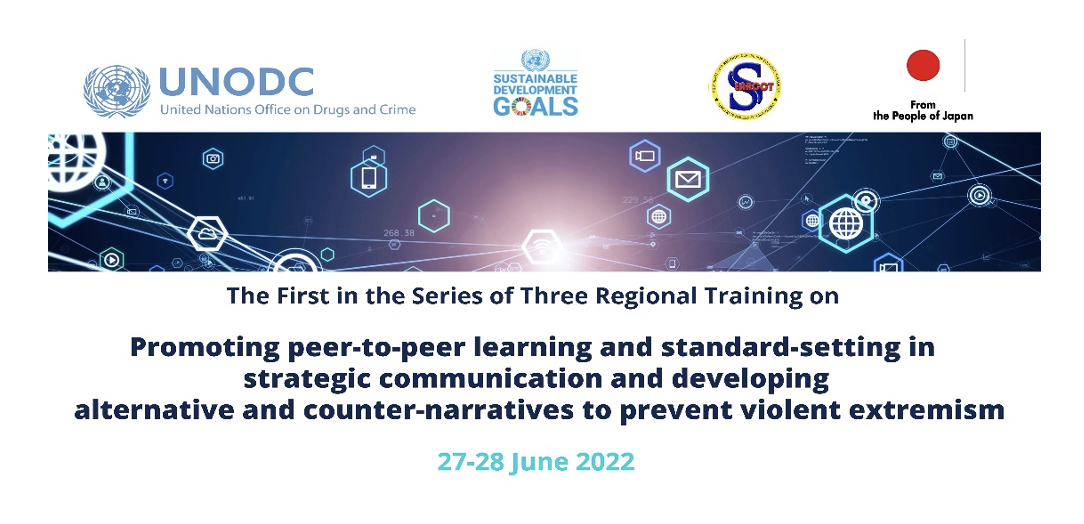
Violent extremist and terrorist groups are extensively using the Internet and other information and communication technologies to spread their narratives and recruit people, especially young men and women.
To tackle these challenges, the UN Secretary-General’s Plan of Action to Prevent Violent Extremism called upon Member States to develop and implement national communication strategies that are gender sensitive, tailored to local contexts and based on international human rights standards.
In line with this call, UNODC partnered with the Southeast Asia Regional Centre for Counter-Terrorism (SEARCCT) of Malaysia to launch a series of regional training sessions on the critical role of strategic communication to prevent violent extremism (PVE) in South-East Asia, especially in the context of the COVID-19 pandemic. Reports indicate that, similar to global trends, violent extremists in South-East Asia have also sought to exploit COVID-19-related sociocultural restrictions by strengthening their efforts to spread propaganda, recruit and radicalize others via virtual platforms.
The first training session was convened in Kuala Lumpur in a hybrid format on 27-28 June and equipped PVE practitioners from Indonesia, Malaysia and the Philippines with up-to-date knowledge and insights on developing effective alternative and counter narrative campaigns.
Building on the European Union’s Radicalisation Awareness Network’s GAMMMA+ (Goal, Audience, Message, Messenger, Media, Action plus Monitoring and Evaluation) model, the training provided a platform for interactive learning of the key elements to be considered when planning and implementing alternative and counter narrative campaigns. In particular, the first training enhanced participants’ knowledge and skills in devising a theory of change, setting goals, as well as identifying and understanding the target audience of a campaign as both co-creators of content and shared solutions.
The training will be followed by two more sessions continuing to utilize the benefits of, and taking into consideration lessons learned from, the GAMMMA+ model. As a result of the training series, the participants will receive practical guidance to develop their own local or national communication campaign strategy tailored to their contexts, needs and priorities in PVE.
The training series is funded by the Government of Japan.